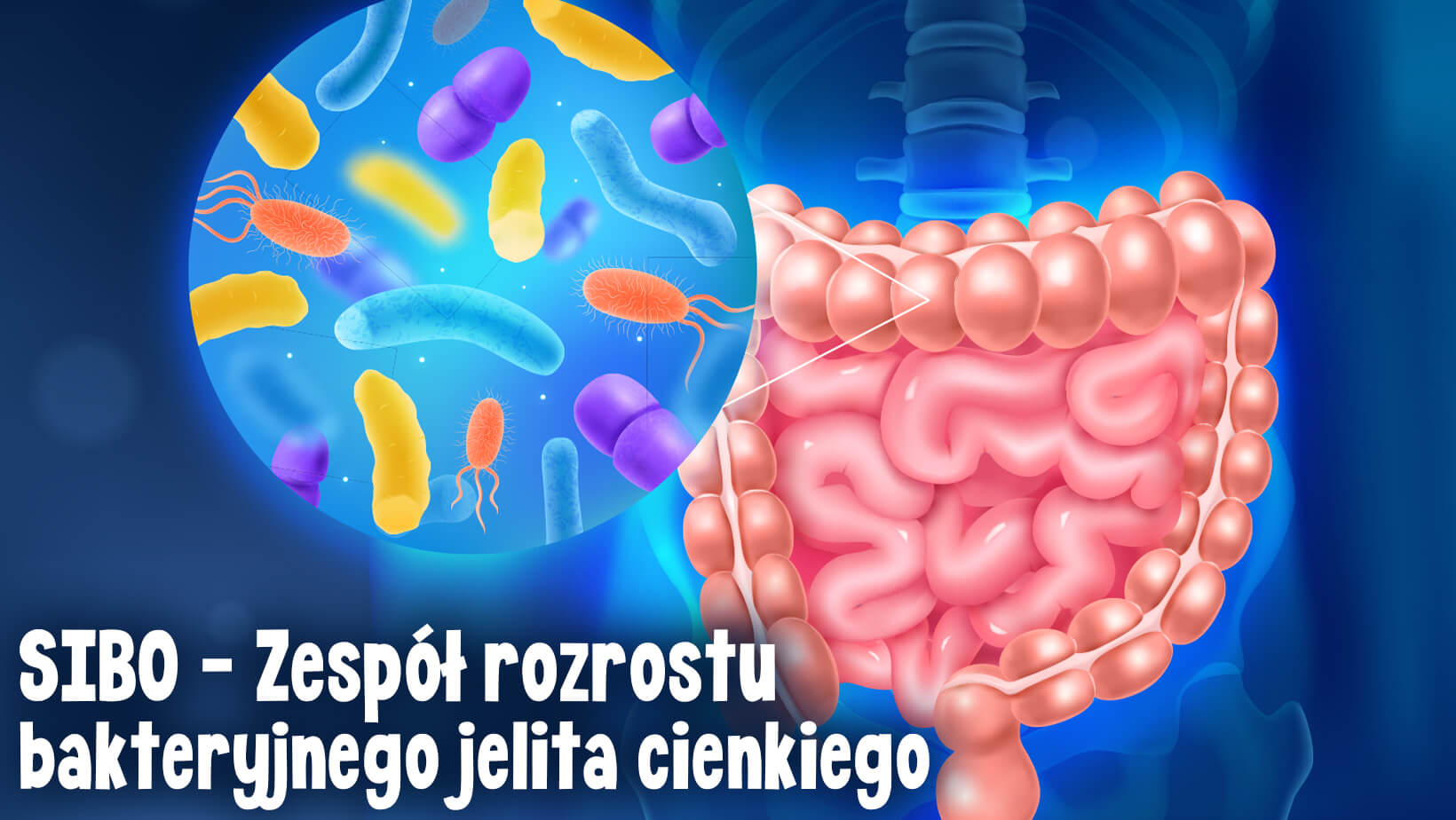
SIBO, or small intestinal bacterial overgrowth, is a condition that is increasingly being diagnosed in people struggling with digestive problems, bloating and nutrient malabsorption. It can lead to serious health consequences, affecting metabolism and figure. In this article you will learn what SIBO is, its symptoms and effects, and how it can be effectively treated.
SIBO (Small Intestinal Bacterial Overgrowth) is a condition in which an excessive number of bacteria grows in the small intestine, leading to digestion and absorption disorders.
Causes of SIBO include anatomical abnormalities of the gastrointestinal tract, peristalsis disorders, immune deficiencies and the use of certain medications.
Symptoms of SIBO are nonspecific and may include bloating, abdominal pain, chronic diarrhea or constipation, weight loss and vitamin deficiencies.
The most accurate diagnostic test is the hydrogen-methane breath test.
Treatment includes antibiotic therapy, an appropriate diet (such as FODMAP) and supplementation of deficient nutrients.
It is advisable to consult a nutritionist for effective diet management and treatment plan.
SIBO (Small Intestinal Bacterial Overgrowth) is a condition in which there is an excessive proliferation of bacteria in the small intestine. Under normal conditions, the number of bacteria in this part of the gastrointestinal tract is relatively low, but in the case of SIBO, there is an overgrowth of bacteria, leading to the fermentation of undigested carbohydrates and numerous digestive complaints.
This disorder can be the result of various factors, such as:

SIBO can cause a wide range of symptoms that are often confused with other digestive conditions. Among the most common are:
SIBO often resembles other disease entities, making it difficult to diagnose correctly. It can be confused with, among other things:

For the diagnosis of SIBO, the hydrogen-methane breath test is primarily used to detect excessive bacterial fermentation in the small intestine. It involves measuring the hydrogen and methane content of exhaled air after ingestion of a specific substrate (glucose or lactulose).
Hydrogen-methane breath test, which analyzes the gases exhaled after ingesting a specific substance (usually glucose or lactulose). The test for SIBO is worth doing at a place that specializes in this type of testing.
1. Preparation (the day before the test)
2. Performing the test (on the day of the test)
3. Interpretation of the results

SIBO therapy aims to restore bacterial balance in the small intestine. Treatment of the underlying disease or elimination of risk factors, such as the use of certain medications or anatomical abnormalities, is crucial. In some cases, it is necessary to consult a surgeon to correct structural defects in the digestive system.
Diet plays an important role in the treatment of SIBO, helping to minimize symptoms and improve nutrient absorption. A popular approach is the FODMAP diet, which eliminates fermentable sugars that exacerbate symptoms of the disease. In addition, the use of medium-chain triglycerides (MCTs) can help the body better utilize fats. In case of vitamin A, D, E and B12 deficiencies, supplementation is recommended.
The mainstay of pharmacological treatment of SIBO is antibiotic therapy, usually based on rifaximin. Treatment lasts at least 7 days and can be extended depending on the patient's condition. Also used supportively are drugs to improve intestinal motility and symptom-relieving preparations, such as cholestyramine, which reduces the severity of diarrhea. The entire therapeutic process should be supervised by a doctor to ensure effective and safe treatment.
If you suspect you have SIBO or are struggling with digestive problems, it is worth consulting a nutritionist. The right diet and treatment plan can significantly improve your life. Get a professional consultation - Contact me.
SIBO is a serious condition affecting the digestive system, which can lead to numerous ailments and nutritional deficiencies. Its symptoms are sometimes nonspecific and can be confused with other diseases. Diagnosis is based mainly on respiratory tests, and treatment includes antibiotic therapy, diet and supplementation. A personalized approach and cooperation with a doctor and nutritionist to effectively manage the disease is key.
1. Rezaie, A., Buresi, M., Lembo, A., et al. (2017). “Small Intestinal Bacterial Overgrowth and Irritable Bowel Syndrome: A Review.” Gastroenterology & Hepatology, 13(3), 150-157.
2. Pimentel, M., Saad, R. J., Long, M. D., et al. (2020). “ACG Clinical Guidelines: Small Intestinal Bacterial Overgrowth.” The American Journal of Gastroenterology, 115(2), 165-178.
3. Polish Gastroenterology Group (2021). “Recommendations for the diagnosis and treatment of SIBO.” Polish Gastroenterological Review, 16(1), 25-40.